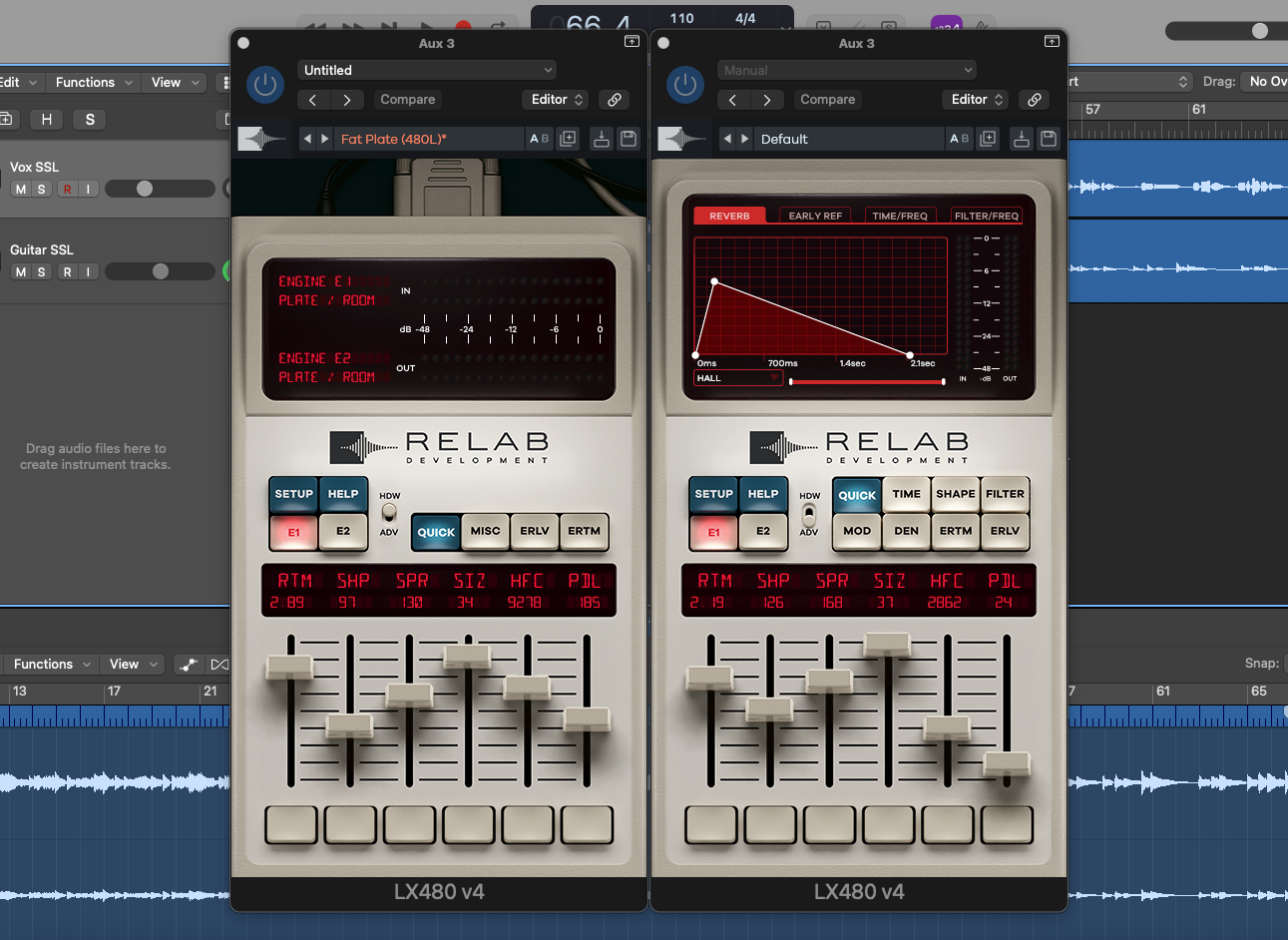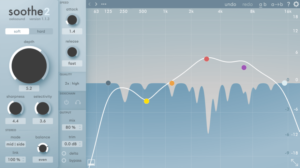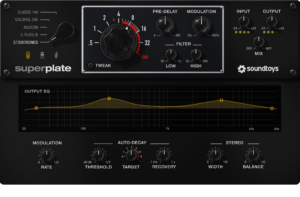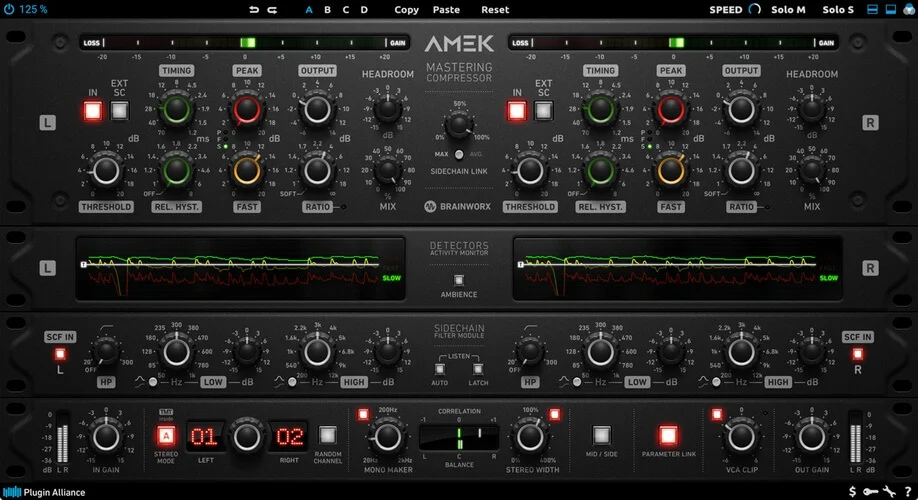Finally! I am reviewing one of my most beloved plugins, the Relab LX480. This reverberation plugin is designed after the famous Lexicon 480L. Arguably, this is the most used and revered reverberation unit in any professional recording or mixing studio. Read on to see my thoughts about how the LX480 is the ultimate reverb. And of course whether or not to purchase the plugin for yourself.
Relab LX480 Context – About Lexicon
To give some context, for those of you who may not know what Lexicon is. This is an organisation, now owned by Harman International Industries (since 1993) – a subsidiary of Samsung Electronics. Initially founded in 1971. Below I’ll discuss some context of how the company arrived at the 480L hardware and beyond!
Model 224 and 224XL
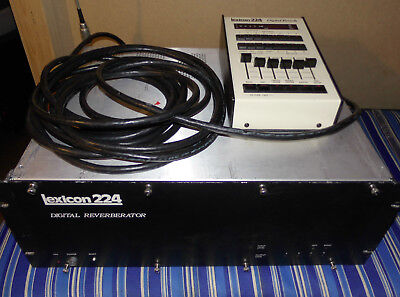
The organisation is considered to be the “godfather of digital reverb”. This was a direct result of their early influence in the reverb market. The company was one of the first to produce commercially available digital reverberation equipment from 1979. This was with the ‘Model 224’ in addition to ‘Prime Time’, a digital delay unit. The 224 was later revised to the model 224XL – which looks similar to forthcoming 480L. This was the classic ultimate reverb that all studios would want to work with!
Model 480L
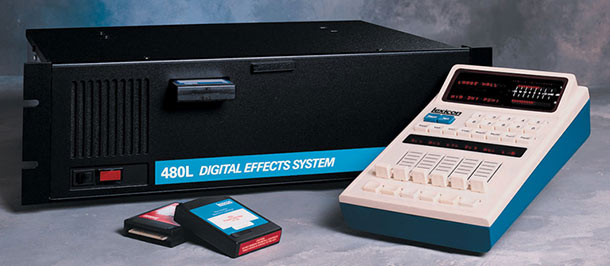
Since the profound success of the Lexicon 224 and 224XL as pictured above. Lexicon designed and released a new iteration of their reverb hardware. This is the Lexicon 480L – of which the Relab LX480 aims to emulate whilst providing additional functionality.
Model 960L
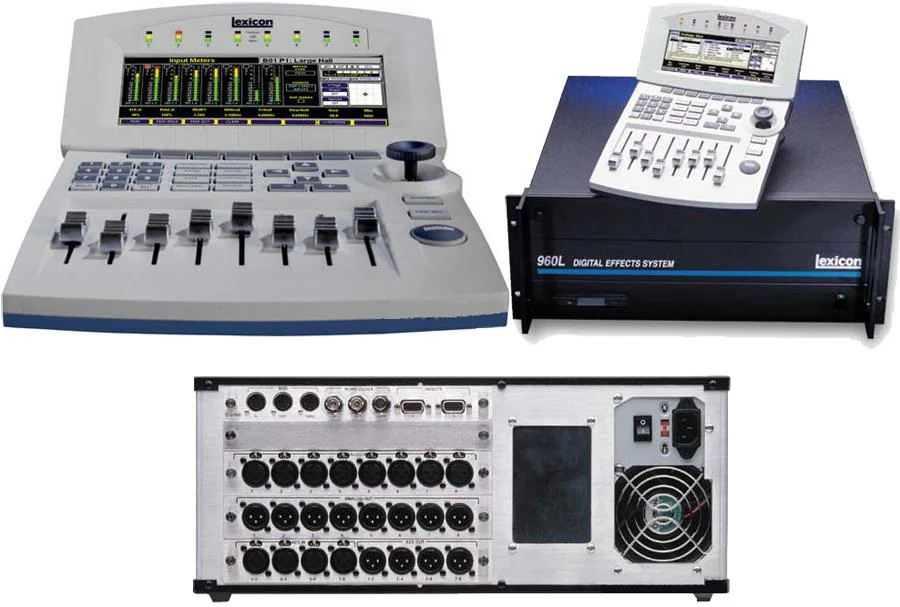
A unit not many talk about is the Lexicon 960L – this was the direct successor to the Lexicon 480L. Although it wasn’t solely concerned with reverb with other effects being an afterthought. This unit was dedicated to being an all in one effects monster machine. Sadly, the unit never saw popularity like the 480L. This was likely due to the difficulty of its use and sheer cost. This leads us to Lexicon’s latest foray into the reverb market. The PCM96.
Model PCM96

The PCM series was introduced as a smaller, more economical option. Particularly in live situations where the 224XL was too cumbersome for a rack rider. First in the series was the PCM-60 (1984), followed a few years later by the Lexicon PCM-70. The latter adding multi-effects from the 224X and a digital screen interface. The MRC, an early MIDI control surface. This was released in the late 1980s to provide remote control of the PCM-70 LXP series processors.
In the 1990s, Lexicon continued the PCM series with two new units, the PCM-80 reverb/multi-effects unit and PCM-90 digital reverb. Lexicon continued the PCM series in the 2000s with new mid-level units including the PCM-96 and PCM-96 Surround. These are standalone reverb units that easily integrate into digital audio workstation (DAWs). This also saw the introduction of lexicon’s own (and highly expensive, but now abandon-ware) PCM Reverb and Effects plugin bundles.
Back to the Relab Development LX480 Plugin
Now we understand the appeal of particularly the Lexicon 480L. Let’s take a look at possibly the best reverb plugin available that emulates the revered 480L hardware. With a forthcoming v4 release.
Relab LX480 v3 and v4
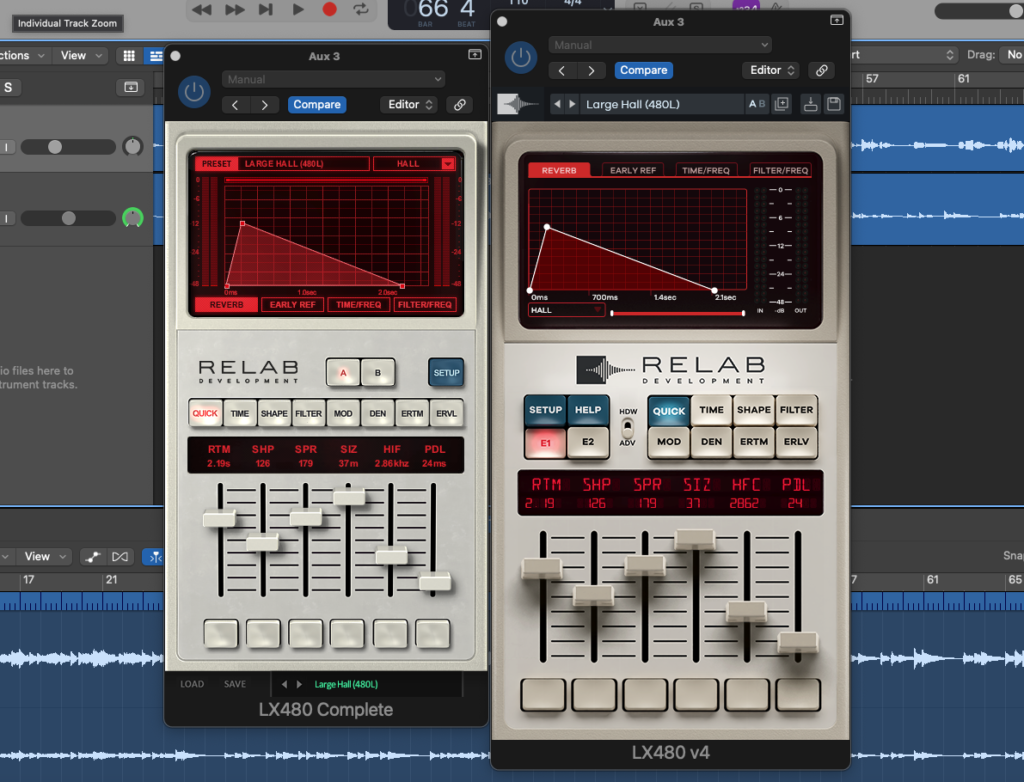
So I must confess, I am fortunate to be beta testing the version 4 of the LX480 plugin. It’s a bold step up from the v1-v3 iterations which is the first major GUI refresh. For the purpose of future-proofing this review. We will be considering the v4 plugin over the v3 Relab LX480. Both sound amazing, there are some refinements over the engines of v4 aside from the major GUI changes. Below are notes from the developers on the Relab LX480 v4 changes:
- Apple ARM chip (M1) and VST3 compatible
- Redesigned user interface
- Three user interface sizes
- Hardware mode that simplifies the interface and more closely resembles the original hardware
- Tempo sync options for Reverb Time Mid, Pre-Delay and Twin-Delays (either via mapping page in setup or by right-clicking on the relevant slider)
- Input and output gain stereo-link option
- Lockable parameters (by right-clicking on the relevant slider)
- Copy and paste values (by right-clicking on the relevant slider)
- Preset system is now dual-engine
- Analogue noise now a separate tickbox decoupled from IO mode
- Modulation truncation is now separated from IO mode and added as an emulation option in the setup page. This allows users to turn off noise without affecting the quality of the emulation.
How Does the Relab LX480 Sound?
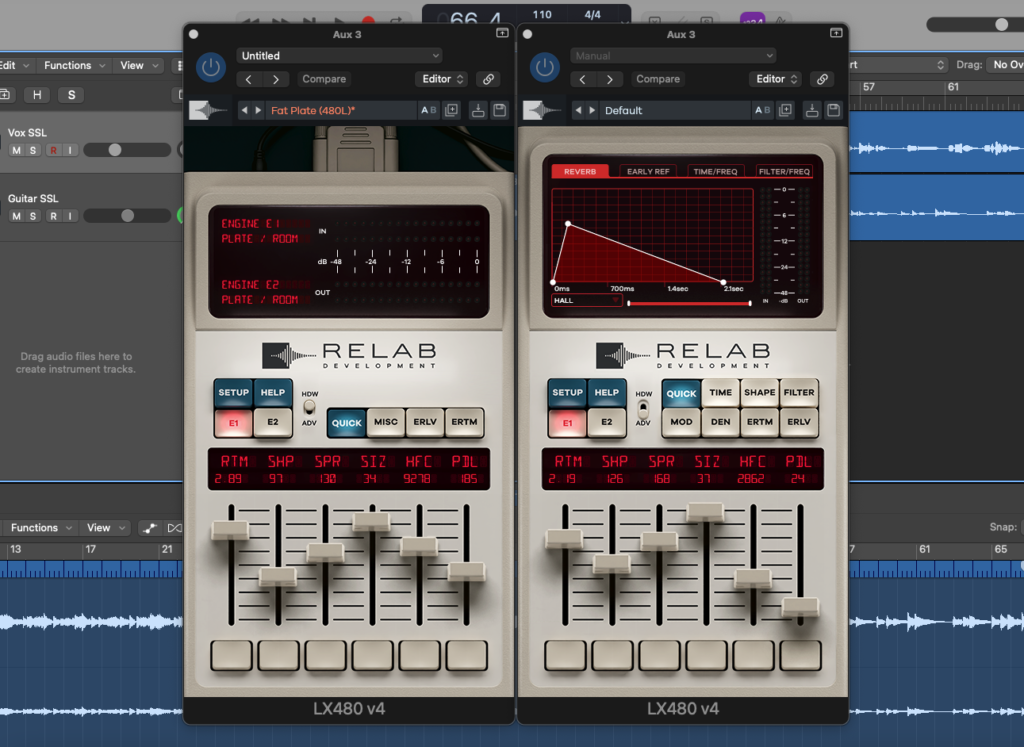
It sounds fantastic, a key issue I had with other reverbs such as by Valhalla (which also aim to emulate the Lexicon sound) is that the reverbs would often sound ‘chattery’ and not smooth on percussion. The Relab LX480 not only nails the exact 480L sound, but gives you smooth results every time that feel realistic and humble, yet larger than life.
In fact, the LX480 is so well-modelled, that it is extremely difficult to find any sonic differences between this plugin and the DSP-restricted (despite using original code from the actual hardware) Lexicon 480L plugin by Universal Audio. The primary thing I enjoy most is how the reverb envelopes your programme material without causing harshness or unwanted artefacts. But conversely, you can also set the LX480 to sound grittier and less perfect. Which makes this plugin extremely versatile for smooth and clean acoustic jazz vocals all the way through to gritty and dirty dubstep or electronic dance music sound design.
It should also be noted that the advanced GUI mode provides an interface that is partially skeuomorphic, but still remains modern and cutting edge with clear controls. The Random Hall ‘HD’ algorithm is also a highly welcome addition over the original hardware. This algorithm feels noticeably smooth and extremely high fidelity. This almost provides you with the sound of the newer Lexicon PCM reverb plugins.
So in short, with this plugin, you get a lot of versatility, extremely high quality as well as continuous endearing support from the developers themselves.
The Verdict
Whilst in some instances, you may prefer to use a Valhalla Reverb for creative processing or an ultra clean convolution reverb for realistic spaces. The Relab LX480 captures the beauty of the Lexicon 480L perfectly with some optimisations over the hardware and UAD version. Ultimately, you’ll always find yourself choosing this plugin over many of the others as a result of its three-dimensional character that is clean and doesn’t introduce any undesirable artefacts. Overall I give this plugin a score of 9.4 out of 10:
- Ease of Use: 8/10
- Sonic Quality: 10/10
- Feature Set: 10/10
- User Interface: 10/10
- Price: 9/10
Find out more about Relab Development LX480 here (academic discount is also available upon enquiry): Relab LX480
